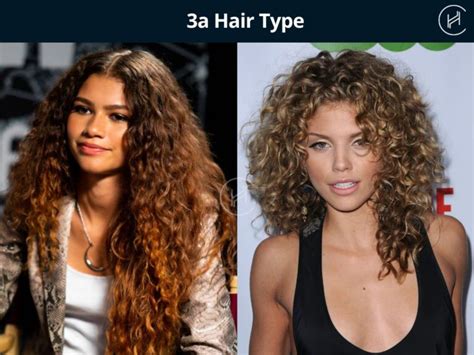The intricate world of curls is a symphony of diversity, boasting a wide range of textures and patterns. Understanding the nuances of your own curls is key to embracing their beauty and unlocking their full potential. Here’s a guide to the three broad categories of curly hair:

- Type 2: Wavy Hair
- Loose, S-shaped curls that fall between straight and curly
-
Subtypes: 2A (loose waves), 2B (defined waves), 2C (tight waves)
-
Type 3: Curly Hair
- Spiraled curls with a defined “S” or “Z” shape
-
Subtypes: 3A (loose, bouncy curls), 3B (medium-sized curls), 3C (tight, springy curls)
-
Type 4: Coily Hair
- Zigzagged or coiled curls that form tight, kinky patterns
- Subtypes: 4A (soft and loose coils), 4B (z-shaped coils), 4C (tight, fine coils)
- Expressive and Versatile: Curls offer endless possibilities for styling, from bouncy ringlets to sleek braids.
- Natural Volume and Texture: Curly hair adds instant volume and definition, creating a unique and eye-catching look.
- Protective Qualities: The tight coils of curly hair shield the scalp from sun damage and breakage.
- Less Frequent Washing: Curly hair tends to be drier than straight hair, requiring less frequent washing to maintain its health.
Why Curly Hair Matters
- Self-Acceptance and Identity: Embracing your natural curls promotes self-love and a celebration of individuality.
- Hair Health: Understanding your curl type allows for tailored hair care practices that optimize its health and vibrancy.
- Cultural and Historical Significance: Curly hair holds cultural significance in many communities, representing strength, beauty, and empowerment.
- Use a wide-toothed comb or detangling brush to prevent breakage.
- Condition regularly to keep curls hydrated and moisturized.
- Apply leave-in conditioner to enhance definition and shine.
- Use a diffuser to dry curls gently, preventing frizz and damage.
- Protect curls from heat damage by using heat-resistant styling tools.
- “Pineapple” your hair at night by gathering it at the top of your head to prevent tangles and frizz.
- Create a “wet plop” by wrapping damp curls in a cotton t-shirt or microfiber towel to absorb excess moisture and encourage curl formation.
- Use a satin pillowcase to reduce friction and minimize breakage.
- Diffuse upside down to create extra volume at the roots.
1. How often should I wash my curly hair?
Once or twice per week, depending on hair texture and lifestyle.
2. What are the best hair products for curly hair?
Shampoos and conditioners formulated for curly hair, leave-in conditioners, and curl creams.
3. How do I reduce frizz in my curly hair?
Use a frizz serum or oil, apply leave-in conditioner, and avoid brushing dry hair.
4. Can I straighten my curly hair?
Yes, but using heat styling tools frequently can damage curls. Use heat protectant spray and low heat settings.
5. Is it normal for my curls to be undefined?
Yes, especially in humid environments. Try using a gel or mousse to enhance definition.
6. How can I protect my curls while sleeping?
Pineapple your hair, use a satin pillowcase, and consider a mesh hairnet.
| Curl Type | Porosity | Description |
|---|---|---|
| Type 2 | Low-Medium | Resists moisture absorption |
| Type 3 | Medium | Absorbs moisture moderately |
| Type 4 | High | Absorbs moisture quickly and loses it easily |
| Curl Type | Moisture Level | Recommendation |
|---|---|---|
| Type 2 | Moderate | Use a deep conditioner once a month |
| Type 3 | High | Use a leave-in conditioner daily |
| Type 4 | Very High | Use a deep conditioner weekly |
| Curl Type | Styling Techniques |
|---|---|
| Type 2 | Air-dry, scrunch, use a curling iron |
| Type 3 | Finger-comb, use a diffuser, apply curl cream |
| Type 4 | Section and twist, use a pick, apply gel |
| Issue | Common Cause | Solution |
|---|---|---|
| Breakage | Friction, heat damage | Use a wide-toothed comb, practice gentle brushing |
| Frizz | Humidity, dryness | Use leave-in conditioner, apply frizz serum |
| Shrinkage | Water absorption | Apply a styling gel, pineapple your hair |
| Tangling | Dryness, friction | Use a detangling brush, conditioner |
